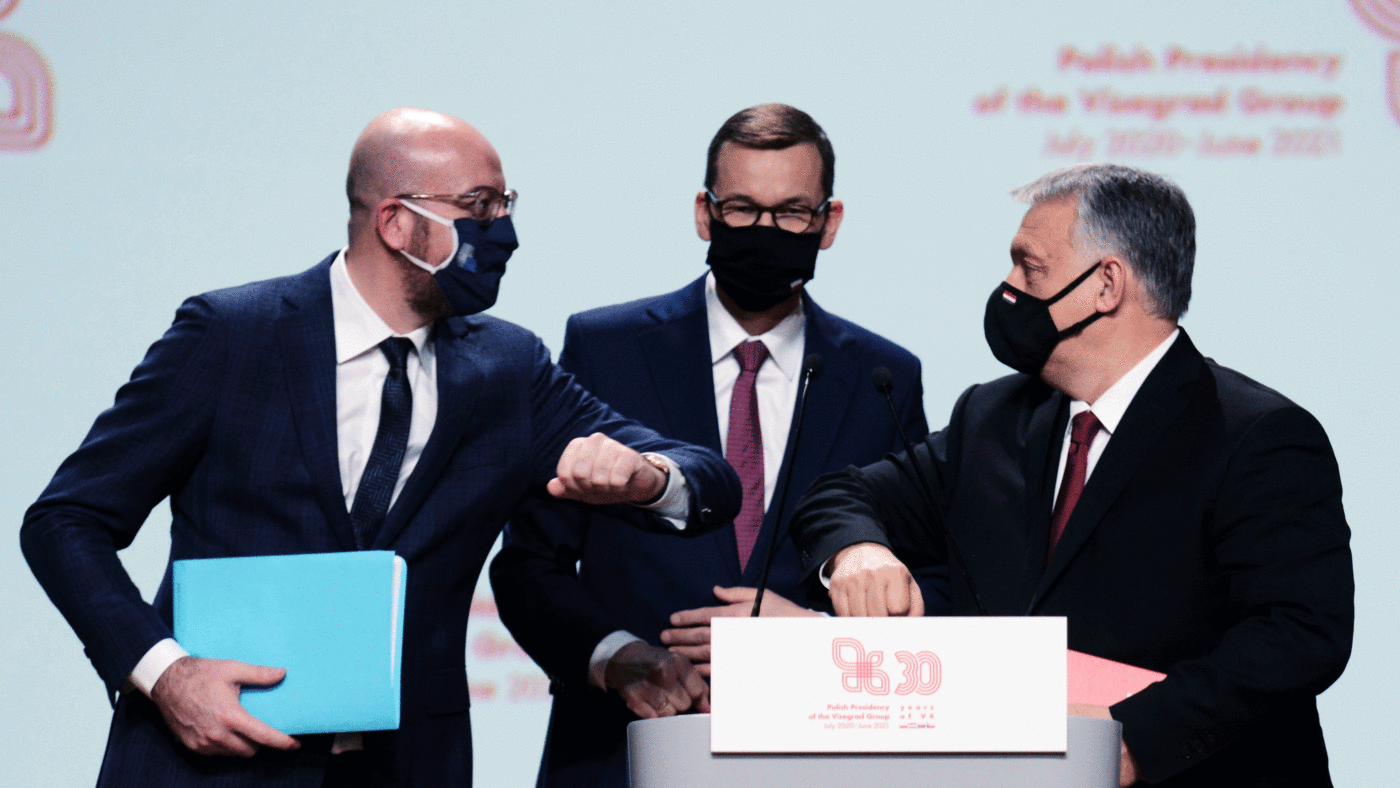The bitter row between Hungary and the EU shows no sign of stopping. The latest chapter in the conflict has seen Viktor Orbán pull his Fidesz party out of the European People’s Party (EPP), a centre-right European Parliament group. The move followed the approval of a rule change which would have allowed the EPP to expel its Fidesz members.
Fidesz’s withdrawal from the EPP will mean a reduced role in EU politics after years of escalating tensions between Budapest and Brussels. Liberal MEPs have rejoiced at the news, with the president of Renew Group Europe claiming there is “no space for the toxic populism of Fidesz in European politics”.
Toxic or not, though, Fidesz’s particular brand of populism is predicted to receive a whopping 46% of the national vote in next year’s election, according to the latest polls. MEPs may push Fidesz to the fringe of EU politics, but the party certainly owns the political mainstream at home.
The EU’s problem is that conflict with Brussels is a key ingredient in Fidesz’s style of politics, and Orbán’s position in relation to EU leaders – positioning himself as a champion of the Hungarian people against Brussels bureaucracy – is a fundamental part of his domestic political persona. Next year’s election will, to a large extent, be a referendum on this style of government – a state of affairs which Fidesz has encouraged through an electoral law reform which effectively requires opposition parties to run together on a single list, as a “United Opposition”.
Following Fidesz’s withdrawal from the EPP, Orbán is seeking victories in Europe to shore up domestic support. And with his particular brand of populism focusing on promoting a strong sense of Hungarian national pride, the growing success of Hungary’s independent approach to vaccination promises to be the big win he needs. Hungary is now at the top of the EU vaccination tables, having been the first member state to procure and use Sputnik V and Sinopharm jabs without EMA approval. Other Visegrád Four nations are starting to see the Hungarian approach as inspired – Slovakia recently opted for the “Hungarian way” by ordering its own Sputnik vaccines, and the Czech Republic is considering following suit.
These countries’ decisions to follow Hungary’s example are politically useful for Orbán because they play into his other international ambition besides standing up to the EU: portraying Hungary as a regional leader in central and eastern Europe. The nation’s major defence renewal programme, for example, aims to establish Hungary as a key force in the region and as an indispensable Nato buffer against the Russian threat. This desire for regional leadership could also be glimpsed in the Rule of Law dispute with Brussels at the end of last year, as Orbán pushed through Hungarian-Polish oppos
With elections approaching it should be noted that, despite vehement and continuous opposition to liberal EU policies, Orbán seems to have no desire for Hungary to follow Brexit Britain out of the door. Fidesz gains political capital from appearing to stand firm against Brussels, but a vote on EU membership is not on the agenda. The party and the public know how much Hungary benefits from EU economic partnerships – particularly with Germany – and despite the fact that around half of the country supports the eurosceptic Fidesz, support for leaving the EU remains low.
Orbán is therefore walking a tightrope when it comes to Hungary’s relationship with the EU: rebelling just enough to appeal to a sense of national pride, but not quite enough to provoke serious questions about Hungarian EU membership.
And as much as many MEPs enjoy criticising Fidesz, the relationship is complicated from the EU’s perspective too. Hungarian industrial capacity is key to the German automotive and arms ind
Fidesz’s EPP withdrawal will certainly weaken Orbán’s influence in the European Parliament. But neither side wants a Hungarian exit from the EU, and if Hungary’s vaccine programme proves successful in the long run, it will position Orbán exactly as he wants to be seen domestically – in relation to Brussels, and in relation to the rest of central and eastern Europe – going into next year’s elections. Tensions are escalating, but mutual interest continues to lock Orbán and the EU in a delicate dance.
Click here to subscribe to our daily briefing – the best pieces from CapX and across the web.
CapX depends on the generosity of its readers. If you value what we do, please consider making a donation.
X depends on the generosity of its readers. If you value what we do, please consider making a donation.


